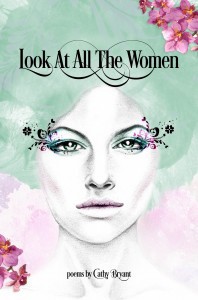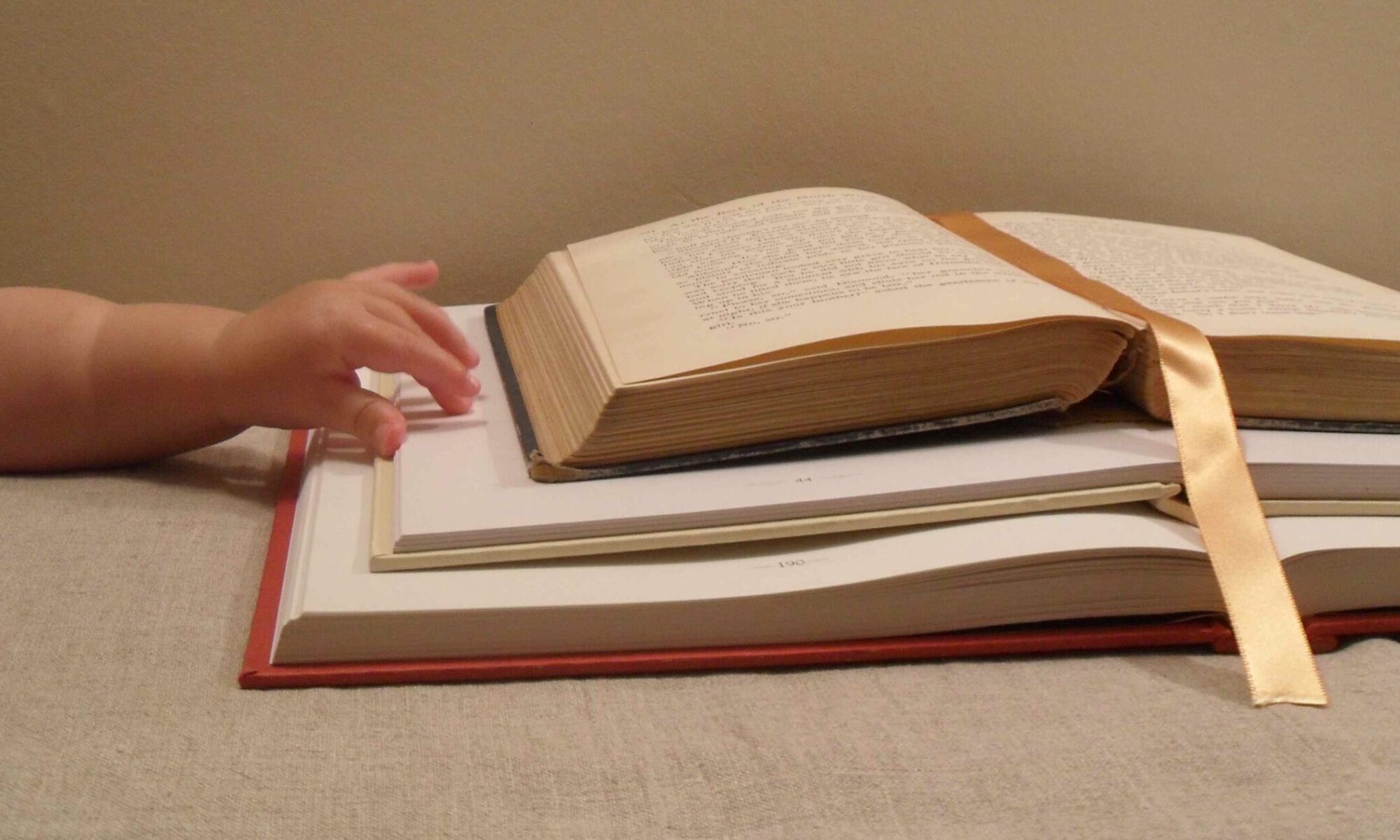Welcome to the ‘Look At All The Women’ Carnival: Week 3 – ‘The Eclectic Others’
This post was written especially for inclusion in the three-week-long ‘Look At All The Women’ carnival, hosted by Mother’s Milk Books, to celebrate the launch of Cathy Bryant’s new book ‘Look At All The Women’. In this final week of the carnival our participants share their thoughts on the theme ‘The Eclectic Others’ (the third, and final, chapter in Cathy’s new poetry collection).
Please read to the end of the post for a full list of carnival participants.
***
When it came to the third section of my book, ‘The Eclectic Others’, my editor and I worked hard to choose the right balance. After all, there was no way we could include every possible take on a woman’s life, unless the book was to have infinite pages! So we fiddled and discussed and put things in and took them out again and scratched our heads and argued for our particular favourites, until we came up with a selection that, if not wholly representative, was at least as strong and varied as we could make it.
Poems we were both keen to keep in included those about some of my personal heroines – those inspirational women who have made a difference to the way I live my life.
One of those was shared with me by an English teacher called Mrs Lawton. Our set text for poetry was a volume called ‘English Poetry 1900-1975’, which contained the work of many wonderful poets – only two of them, however, being women. One was Stevie Smith. The other was Sylvia Plath. (As poet Ali Smith said, between those two you get most of human experience, but still!)
So imagine me at 14, being abused at home by my violent father (who was also headmaster of my school), depressed and suicidal, self-harming and lost, opening the book obediently and finding the nursery rhyme rhythms of a hellish experience not far from my own: Daddy. You can see the poem here. http://www.poetryfoundation.org/poem/178960
It knocked my socks off, and my shoes and mind too. For terms we had been dissecting poems to see why and how they were clever, and now a strange, dead, American woman had reached right inside me and spoken to me in the language of my sorrow and fear.
I loved her after that and read everything she wrote, including her diaries – and found her to be a complex person, often far sunnier and funnier than the myths would have us believe, full of life and charm and brilliance. On the 50th anniversary of her death I went with my O.H. to visit her grave in Heptonstall, and when I came home I sat and wrote the experience down – it was so vivid. It came out partly as prose and partly as a poem. You can see the prose result here: http://www.writeoutloud.net/public/blogentry.php?blogentryid=34328
And here is the poem:
Yellow Roses on Snow
(written after visiting Sylvia Plath’s grave on the fiftieth anniversary of her death)
It’s a plain grave, though thickly meringued with snow;
dark granite monolith open to the sky. The church
is old and friendly, proud with bells pealing
in glorious cascades. There is a sense of celebration
as well as mourning in the tan stone streets,
some cobbled, with views of hills, hills, hills
all covered in snow. But such a small grave.
There are several of us, strangers, women in black
lighting candles and laying the sunshine roses
(her favourite flower, her mother said)
on the grave, and mourning the dead woman
we didn’t know.
Sudden sobs – it’s so cold, she’ll be cold,
she hated the cold. Sympathy. Chilled hands
try to warm mine. My red skirt, the blue candle
the only spots of colour save the roses,
buttery as an American sun, yellow as
a New England leaf when Autumn falls.
As if conjured, the same sun breaks out here
over the grave and us, drawing yellow and white
into a new gold. We feel relief
at the literal lightening. We had not wanted to leave
her alone, but the sun is there to warm her now.
Departing, we see knots and threads of folk
rag-rugging their way to her, heads bowed
against the bitter weather, though now the sun
is blazing, blazing on top of this blessed
hill village in Yorkshire.
Did I really think that it would be grim and dark?
That we would be given nothing here?
We were met by strength, connection
and a culmination. For us, this was pilgrimage.
***
There are tributes and examinations of other heroines of mine too – Sophie Scholl, who was shot at the tender age of 19 by the Nazis for disseminating anti-nazi information, and Colette, that redoubtable and sensual writer with a wicked smile and a gimlet eye. There’s also a poem about my favourite statue, which just happens to be of another strong woman, and one from the myths of ancient China. They have all opened doors for me, all helping to articulate my own escape and transformations.
Here’s the poem about Sophie Scholl. I think of her whenever someone gives all the reasons why they can’t stand up for what’s right.
The White Rose
How can we expect righteousness to prevail when there is hardly anyone willing to give himself up individually to a righteous cause? Such a fine, sunny day, and I have to go, but what does my death matter, if through us thousands of people are awakened and stirred to action?
– the last words of Sophie Scholl, member of The White Rose resistance group, before the Nazis executed her.
You didn’t say, one person can’t make a difference.
You didn’t say, there’s no point in trying.
You didn’t say, well, what can you do?
You didn’t say that the Nazis were too powerful,
and that it was too risky.
Instead you printed your leaflets, distributed them,
and talked, and called to action;
and so they killed you.
But you had lit fires of resistance
that a cold bullet couldn’t quench;
planted seeds for all of us
to follow, every new rose,
and the fires still burn
and the flowers still bloom
because you didn’t do the maths
(you were just nineteen, so young)
and play the odds but instead
taught us – me – how to make a difference;
how to live and how to die,
how to light flames and grow flowers.
***

Look At All The Women is now available to buy from The Mother’s Milk Bookshop (as a paperback and PDF) – we can ship books around the world!
and as a paperback from Amazon.co.uk.
It can also be ordered via your local bookshop.
If you’d like to know more about Mother’s Milk Books — our submission guidelines, who we are and what we do — please find more details on the submissions page.
Please take the time to read and comment on the following fab posts submitted by some wonderful women:
‘Heroines and Inspirations’— Cathy Bryant, guest posting at Mother’s Milk Books, shares two powerful, inspiring poems, and how they came into being.
‘Sensitivity’ — Marija Smits shares a poem, with an accompanying image, that gives a glimpse into the inner workings of a highly sensitive person.
Georgie St Clair shares her creative female heroines in her post ‘Creative Others: Mothers Who Have It All’
‘The Eclectic Others – Or What Would I Have Been Without You?’ — Kimberly Jamison posts to her blog The Book Word a thank you to the women of literature and history who have been in her life, shaped her life, saved her life and gave her a future.
‘Barbie speaks out’ — Ana Salote at Colouring Outside the Lines shares a platform with feminist icon, Barbie.
‘Her Village’ — An older (much older than most) first time mother, Ellie Stoneley from Mush Brained Ramblings firmly believes in the old African adage that it takes a village to raise a child. To that end she has surrounded her daughter with the love, mischief and inspiration of an extremely eclectic bunch of villagers.
Survivor writes about the inspiring life of La Malinche and her place in Mexican history at Surviving Mexico: Adventures and Disasters.
Sophelia writes about the importance of her community as a family at Sophelia’s Adventures in Japan.
